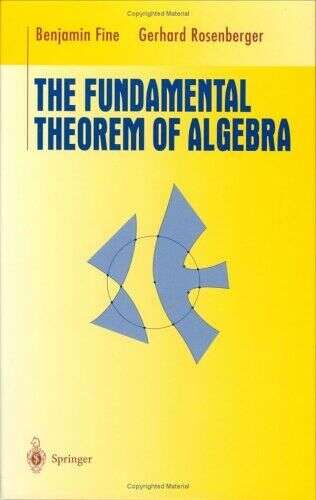This post assumes familiarity with some basic concepts in complex analysis, including continuity and entire (everywhere complex-differentiable) functions. This is likely the simplest proof of the theorem (at least, among those that this author has seen), although it stands on the shoulders of a highly nontrivial theorem.

The fundamental theorem of algebra has quite a few number of proofs (enough to fill a book!). In fact, it seems a new tool in mathematics can prove its worth by being able to prove the fundamental theorem in a different way. This series of proofs of the fundamental theorem also highlights how in mathematics there are many many ways to prove a single theorem, and in re-proving an established theorem we introduce new concepts and strategies. And perhaps most of all, we accentuate the unifying beauty of mathematics.
Problem: Let $ p(z): \mathbb{C} \to \mathbb{C}$ be a non-constant polynomial. Prove $ p(z)$ has a root in $ \mathbb{C}$.
Solution: Picard’s Little Theorem states that any entire function $ \mathbb{C} \to \mathbb{C}$ whose range omits two distinct points must be constant. (See here for a proof sketch, and other notes)
Suppose to the contrary that $ p$ has no zero. We claim $ p$ also does not achieve some number in the set $ \left \{ \frac{1}{k} : k \in \mathbb{N} \right \}$. Indeed, if it achieved all such values, we claim continuity would provide a zero. First, observe that as $ p(z)$ is unbounded for large enough $ |z|$, we may pick a $ c \in \mathbb{R}$ such that $ |p(z)| > 1$ whenever $ |z| > c$. Then the points $ z_k$ such that $ p(z) = 1/k$ all lie within the closed disk of radius $ c$. Because the set is closed and the complex plane is a complete metric space, we see that the sequence of $ z_k$ converges to some $ z$, and by continuity $ p(z) = 0$.
In other words, no such sequence of $ z_k$ can exist, and hence there is some $ 1/k$ omitted in the range of $ p(z)$. As polynomials are entire, Picard’s Little theorem applies, and we conclude that $ p(z)$ is constant, a contradiction. $ \square$
Want to respond? Send me an email, post a webmention, or find me elsewhere on the internet.